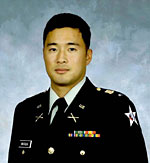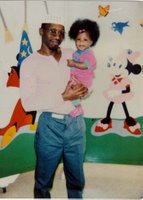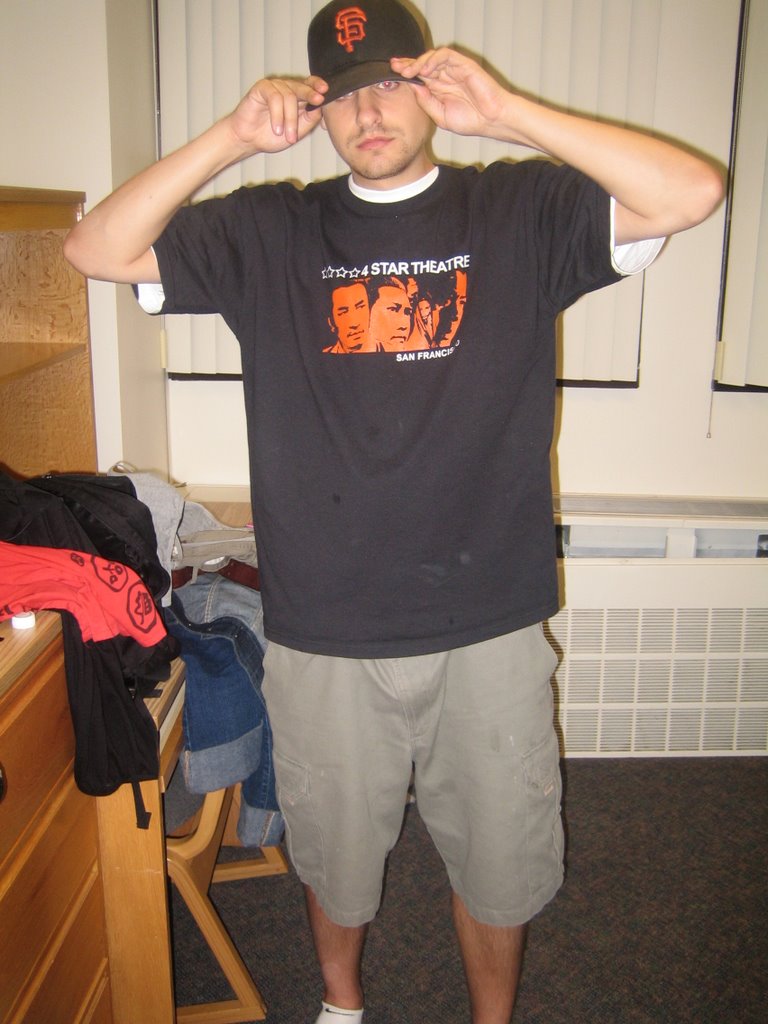 Haditha Is Arabic for My Lai
Haditha Is Arabic for My Lai
Yesterday (May 31) the Associated Press reported that U.S. soldiers killed a pregnant
Iraqi woman at a checkpoint. The news comes as the military's official report on
the deaths of 24 Iraqi civilians in Haditha is about to be released. Military officials
have already hinted to the press that the report will confirm allegations of a
cold-blooded massacre followed by a cover-up.
Below activist and author Rahul Mahajan probes beneath the gruesome headlines to
analyze the underlying dynamics of the Haditha massacre, what it reveals about the
U.S. occupation and more generally about U.S. political culture since 9/11, and
what responsibilities fall upon the antiwar movement.
Haditha Is Arabic for My Lai
By Rahul Mahajan
http://www.empirenotes.org/
One day in November 2005, Marines in Haditha decided to take revenge for the death
of one of their comrades from an IED by deliberately murdering 24 innocent, unarmed
men, women, and children. They went into their houses and shot them at close range.
Adults begged and pleaded and attempted to save their children by shielding them
with their bodies, praying to the same god the soldiers pray to.
Afterward, the Marines lied to cover up their actions. The eight helpless men they
slaughtered became "insurgents." The other 15, necessarily "civilians"
because of age or sex, they first claimed were also victims of the same IED; later,
some were supposed to have been "collateral damage" of a supposed "exchange
of gunfire" with said "insurgents."
Unluckily for them, a journalism student had taken video of the bodies in the Haditha
morgue, with images that showed victims shot in the head from close range in
execution-style killings. According to Rep. John Murtha, speaking last week to the press
and on Hardball with Chris Matthews, the military investigation of the incident will uphold
the above claims.
Although Murtha was much more interested in making excuses for the Marines because
of the stressful nature of the situation they were being put in than in talking
about the actual incident, the old militarist deserves credit. When Matthews tried
to spin the incident, Murtha calmly corrected him and said, no, there was no battle,
no exchange of gunfire, no explosion - the troops killed 23 people "in cold
blood." When Matthews asked him if this was like My Lai, Murtha quite honestly
said it was.
Indeed, the parallel to the My Lai massacre in the Vietnam War, where American soldiers
slaughtered up to 500 Vietnamese civilians, lining men, women, and children up to
be machine-gunned, is inescapable. The scale is smaller and most likely no women
were raped this time, but the bestiality of the Haditha massacre is equivalent.
Now is not the time to bleat about our "support" for "the troops."
These particular depraved murderers deserve the best of medical care when they get
home - but they should get it in prison.
Although for most Americans My Lai has somehow become a metonym for all American
crimes in Vietnam, the truth is that My Lai was simply the tip of the iceberg.
Smaller-scale massacres were common; in some areas, the indiscriminate killing of
Vietnamese was standard operating procedure.
Haditha is also the tip of an iceberg. Two aspects of the incident suggest the
possibility that there have been many more just like it. First, the attempted coverup, with
stories about a firefight and collateral damage. Had it not been for video evidence
that contradicted this, it's very unlikely a military investigation would have been
anything more than a rubber stamp.
Second, the attempt to pass off the eight men as insurgents. This, of course,
encapsulates the logic of the U.S. military in the worst areas. During the second
assault on Fallujah, for example, the operative principle was that any "military age male"
in the city was presumptively a fighter and thus subject to attack. Plant a gun
on a man you've killed, or, for that matter, a shovel, and instantly he's an
"insurgent."
Haditha also connects organically to a whole series of different ways to kill civilians
- checkpoint killings by trigger-happy soldiers, indiscriminate return fire in
crowded civilian areas, use of area weapons like 2000-pound bombs on "suspected
insurgents," and a general "shoot first ask questions later" policy
- that frequently amounts to, if not deliberate murder, a depraved indifference
to Iraqi life. Then add on to that incidents like the two 2004 assaults on Fallujah,
where civilian "collateral damage" is so widespread as to be a feature
rather than a bug.
An innumerate and unempathetic American public was never able to comprehend the
enormity of the crime that was the Vietnam War. To this day, people estimate that
perhaps 100,000 Vietnamese - 3 to 5% of the actual number - were killed. While it
was going on, the massive bombardment, the devastation of the ecosystem, the systematic
destruction of life in certain rural areas, did not fully register with the vast
majority of Americans. It was only the My Lai massacre that brought home to them
the savage immorality of the war. Although Tet marked a turning point regarding
winnability of the war, it was My Lai that turned the public morally against the war.
The time is ripe for a similar transformation regarding Iraq. So far, the brutality
of parts of the insurgency on the one hand and the valorization of the troops on
the other have made it difficult for any moral case against the war to be made (it's
hard mentally or emotionally to associate immoral acts with heroes and choirboys,
let alone the heroic choirboys who are constantly presented to us). That must change
now, and the Haditha massacre shows the way. Haditha is, indeed, Arabic for My Lai.
The Lessons We Learn
In the past several days, the Haditha massacre has been covered in depth by the
New York Times, the Washington Post, the Los Angeles Times, and TIME magazine, as
well as garnering some network news coverage. So far, local and regional papers
have not followed suit.
When the results of the military investigation are released, supposedly next week,
the level of media coverage should increase further.
John Murtha and even Republican John Warner of the Senate Armed Services Committee
say that there was a coverup of the incident that quite clearly involved higher-up
officers in the Marines. According to Murtha, "Until March, there was no serious
investigation. There was an investigation right afterward, but then it was stifled."
Had it not been for the Iraqi journalism student's video of the bodies, turned over
by TIME magazine to military authorities, there would have been no investigation
at all. Without further video evidence, like a Marine's cell-phone picture of Iraqis
kneeling before they were shot, the initial conclusion of the investigators, that
the incident was a mere example of "collateral damage," would likely have
been sustained.
The U.S. news media effectively helped to keep the story under wraps. Although TIME,
the Independent, and other foreign media had covered it months earlier, until Murtha
spoke up at a May 17 press conference, essentially nobody else had picked up the
story - even though a massacre of civilians by U.S. troops is unquestionably
newsworthy.
Despite some consternation within official ranks over this story, there are already
signs that an American public conditioned by longstanding prejudices to see the
Iraq occupation as a savage bellum omnium contra omnes involving senseless Iraqis,
with American troops trying vainly to impose order, will find it hard to process
a story about atrocities committed by those same U.S. troops, much less one that
suggests what an atrocity the whole occupation is. The predictable reprise of the
Abu Ghraib - a few rotten apples - spin from the right wing, along with denunciations
of John Murtha and others for attacking the troops will not help; neither, in turn,
will Murtha's and others' constant protestations that they are not attacking the
troops but supporting them nor their invocations of the great stress the Marines
were under that forced them to go and shoot small children at point-blank range.
To understand the kind of intellectual and moral culture these revelations will
fall into, one need look no further than Maureen Dowd's last column. A sensitive
humanist and liberal, she is clearly disturbed by the killings. And yet the upshot
of her piece is this: the occupation of Iraq is making us become like them. We should
not allow our contact with this particular heart of darkness to make us into them.
It is true that there are groups in Iraq that have distinguished themselves by
phenomenal, senseless brutality. Even so, it is galling for America to invade a country,
occupy it, destroy its social structures, cause the death of hundreds of thousands, kill
tens of thousands itself, permanently destabilize the country, and even, occasionally,
deliberately murder civilians, and have the only lesson be that we shouldn't let
Iraqi brutality contaminate us.
Two other stories will have to be covered in order for the American public to make
sense of this story - in addition to the obvious one that Haditha is the tip of
the iceberg. First, it is not true, as Murtha suggested, that lack of training has
anything to do with this. On the contrary, U.S. military training makes such incidents
inevitable. Soldiers march to chants like "Kill! Kill! Kill! Blood makes the
grass grow." This is not mindless sadism, but rather a specifically developed
regimen designed to overcome the natural human aversion to killing another human.
Soldiers are made into killing machines; a culture that will do this on the one
hand and on the other constantly tout "humanitarian intervention," where
soldiers are supposed to safeguard the interests of a civilian population, is a
culture in deep denial.
Second, racism and the peculiar brew of racialized militant nationalism and religion
in the wake of 9/11. British officers have remarked numerous times on how U.S.
interaction with Iraqis is characterized by racism. Remarking on the propensity of U.S.
troops to use massive return fire in civilian areas, something it's hard to imagine them
doing in, say, Europe, one British officer said, "They don't see the Iraqi
people the way we see them. They view them as untermenschen." This component
has been ignored for too long.
Even My Lai, unfortunately, did not teach Americans lasting lessons of the kind
they really need to learn. It is unquestionably up to the antiwar movement to try
to ensure that Haditha does.
 Radio Interview on "La Otra Campaña"
Radio Interview on "La Otra Campaña"




